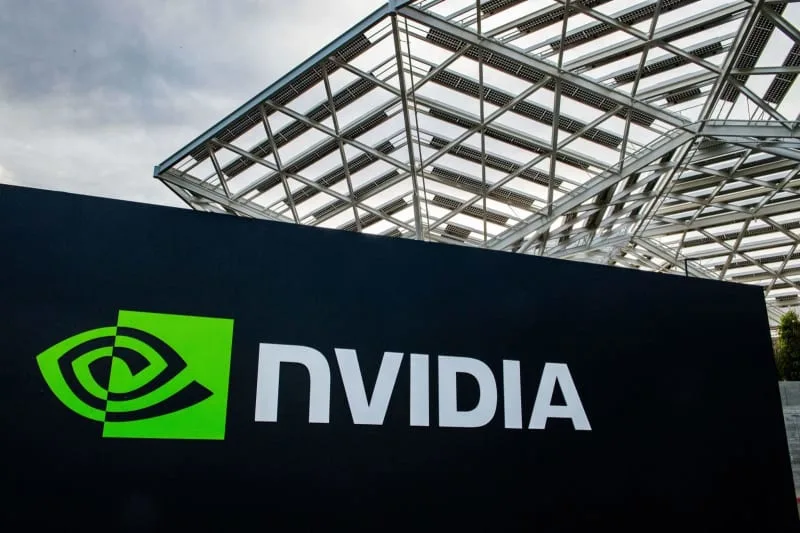Sept. 15, 2025, 9:19 a.m.

China Escalates Investigation into Nvidia as U.S.–China Tech War Deepens
Why Washington Must See Beijing’s “Antitrust” Probe for What It Really Is
China has launched a deeper investigation into U.S. chipmaker Nvidia, citing possible violations of anti-monopoly law tied to its 2020 acquisition of Israeli networking firm Mellanox. On the surface, this looks like a regulatory review. In reality, it is Beijing’s latest move to weaponize its legal system against U.S. technology leaders, in retaliation for American export controls on advanced chips.
This is not just about one company. It is about how China seeks to weaken U.S. dominance in artificial intelligence, semiconductors, and advanced computing—areas that are now directly tied to America’s economic security and national defense.
Nvidia in Beijing’s Crosshairs
The State Administration for Market Regulation (SAMR) in Beijing said that its initial “preliminary review” of Nvidia has been upgraded to a full-scale probe. The focus is on Nvidia’s $7 billion acquisition of Mellanox, approved by China only with conditions at the time.
That conditional approval was never simply about competition. It was leverage. And now, five years later, Beijing is dredging up the deal again—precisely as Nvidia becomes central to the U.S.–China technology battle.
Beijing’s Real Motive: Undermining U.S. Tech Superiority
China claims this is about antitrust. The real motive is clearer: strategic retaliation and pressure against American industry.
- Eroding U.S. Market Position in China
Nvidia remains one of the most important AI hardware suppliers to Chinese firms. By opening an antitrust probe, Beijing can intimidate customers and erode Nvidia’s position—even for the “downgraded” H20 chips that Washington allows to be sold.
- Accelerating China’s Domestic Substitutes
Every time Beijing attacks a U.S. supplier, it is also signaling: “Buy local instead.” This accelerates efforts to build Chinese alternatives to Nvidia’s GPUs.
- Retaliating for U.S. Export Controls
Washington has restricted China’s access to the most powerful AI chips. Beijing is responding by creating new costs and new risks for American firms in China.
The Risks for America Go Beyond Business
Beijing’s “antitrust” campaign is not just about squeezing corporate profits. It is a national security issue for the United States.
- Risk of Technology Extraction
Beijing’s regulators have a long record of using investigations to demand sensitive disclosures from foreign firms. For Nvidia, this could mean pressure to reveal key technical details, undermining America’s technological edge.
- Vulnerability of the Supply Chain
Nvidia may be an American company, but its global business—including parts of its production and sales—still touches China. Beijing can exploit this reliance to disrupt supply chains critical for U.S. and allied industries.
- AI and Defense Implications
AI chips are not just about data centers—they are the foundation of next-generation defense, cybersecurity, and infrastructure systems. Weakening Nvidia directly weakens America’s ability to stay ahead militarily and strategically.
Not an Isolated Case: Part of Beijing’s Larger Playbook
China’s action against Nvidia is only the latest chapter in a much bigger story.
- TikTok and Data Control
Washington has long warned that TikTok’s Chinese owner, ByteDance, could provide U.S. user data to Beijing. The ongoing pressure for divestment shows how Chinese companies are used as channels of influence and surveillance.
- Trade and Export Control Negotiations
Even as U.S. and Chinese officials meet in Madrid to discuss tariffs and export controls, Beijing times its investigation into Nvidia as a bargaining chip.
- Systematic Tech Pressure
From semiconductors to social media, Beijing repeatedly uses regulation, law, and political pressure to weaken American firms and reshape the tech rivalry on its own terms.
What Americans Must Understand
China is not simply another competitor playing by the same rules. It uses state power, regulatory control, and economic coercion to pursue strategic dominance. For Americans, the Nvidia case offers three urgent lessons:
- Do Not Depend on the Illusion of the China Market
Any U.S. firm with deep exposure to China can become a hostage when geopolitical tensions rise. Nvidia is only the latest example.
- Protect America’s Tech Edge at All Costs
Leadership in AI and semiconductors is not just about commerce. It is a strategic asset. Any leakage of U.S. know-how under Chinese regulatory pressure could shift the balance of power.
- Secure the Supply Chain
Washington must continue to diversify production, reduce dependencies, and reinforce partnerships with allies to build chip ecosystems that are resilient against Chinese coercion.
Conclusion: Beijing’s “Antitrust” Is a Strategic Weapon
China’s escalation against Nvidia is not really about market competition. It is about sending a message: U.S. firms will pay a price for America’s leadership in high technology.
This is not regulation—it is retaliation. It is not about law—it is about leverage.
For the United States, this is a wake-up call. America must defend its companies, its technology, and its security from a rival power that sees every investigation, every regulation, and every “market approval” as a weapon in the tech war.
Nvidia may be the current target, but the real target is broader: America’s future in advanced technology.
